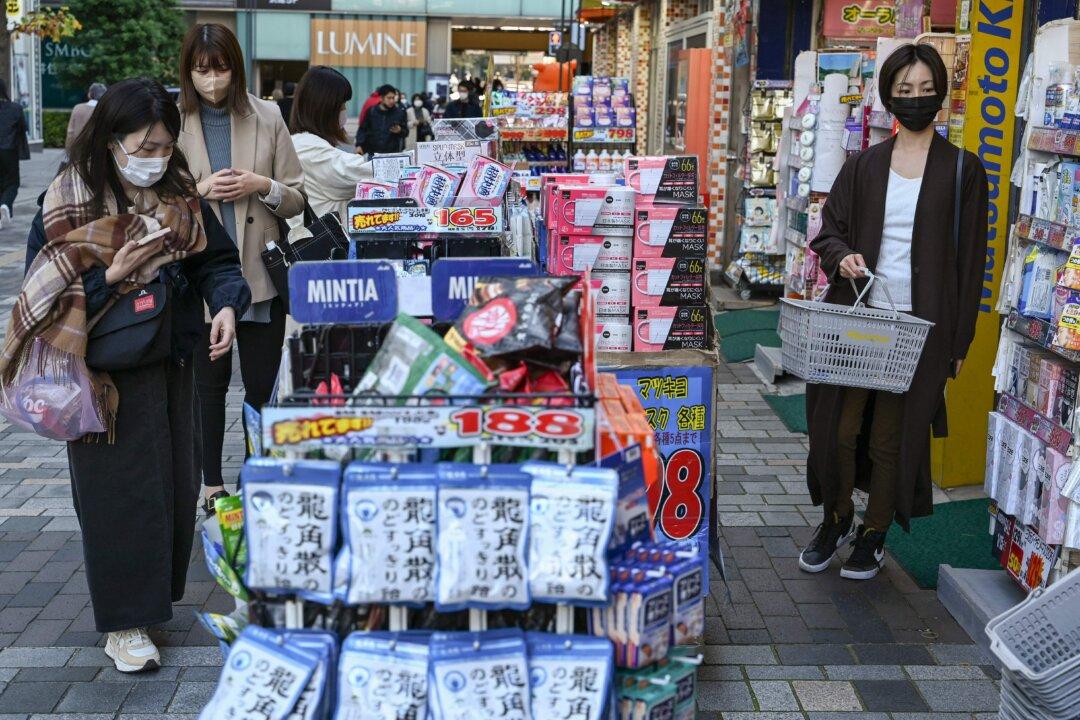Consumer prices in Japan’s capital, Tokyo, rose 3.6 percent in November from the previous year, the fastest pace since 1982, owing to a weaker yen and higher energy prices, government data showed on Nov. 25.
Tokyo’s core consumer price index (CPI), which excludes fresh food items, exceeded the Bank of Japan’s (BOJ) 2 percent target for the sixth consecutive month, indicating persistent inflationary pressures, Kyodo News reported.





